The Ghana Airports Company Limited (GACL) has reaffirmed its commitment to healthcare support through a generous donation to the Renal Unit and National Cardiothoracic Centre (NCC) at Korle Bu Teaching Hospital (KBTH).

This initiative includes two state-of-the-art dialysis machines with treatment chairs valued at $112,000 for the Renal Unit, as well as a cheque for ₵200,000 to assist the NCC in its mission to provide specialized care.
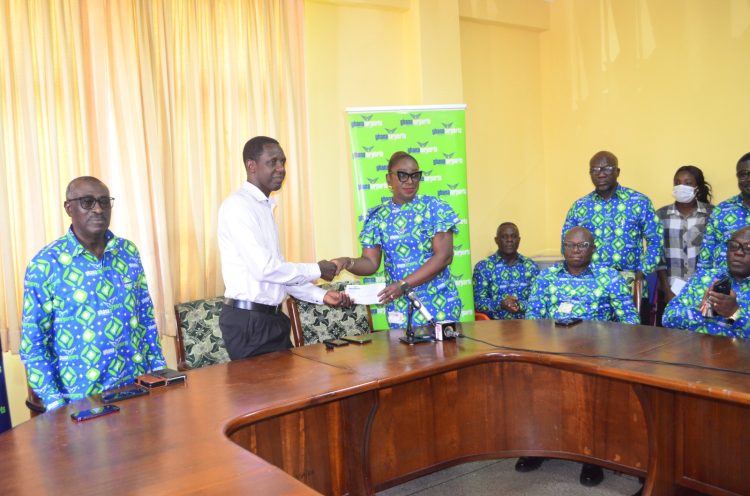
During the handover ceremony, GACL’s Managing Director, Mrs. Yvonne Nana Afriyie Opare, highlighted that the donation was a direct response to recent reports revealing the Renal Unit’s struggle with an equipment shortage.
“We recognize the vital role of the Renal Unit in serving patients who require dialysis, and this donation is aimed at bridging some of the critical gaps in resources,” Mrs. Opare stated.
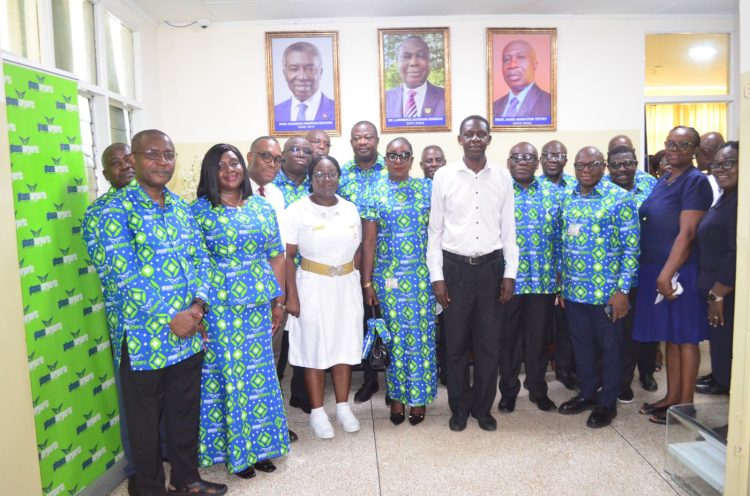
She further announced that, in addition to the equipment, GACL will cover the dialysis treatment costs for 50 patients over the next month, reducing the financial strain on both patients and their families.
Dr. Frank Owusu Sekyere, Acting CEO of Korle Bu, expressed his gratitude, noting that the donated equipment will significantly enhance the Renal Unit’s ability to meet the increasing demand for dialysis services. “This intervention comes at a critical time when many patients face challenges affording life-saving treatments, putting immense strain on our limited resources,” Dr. Sekyere said.
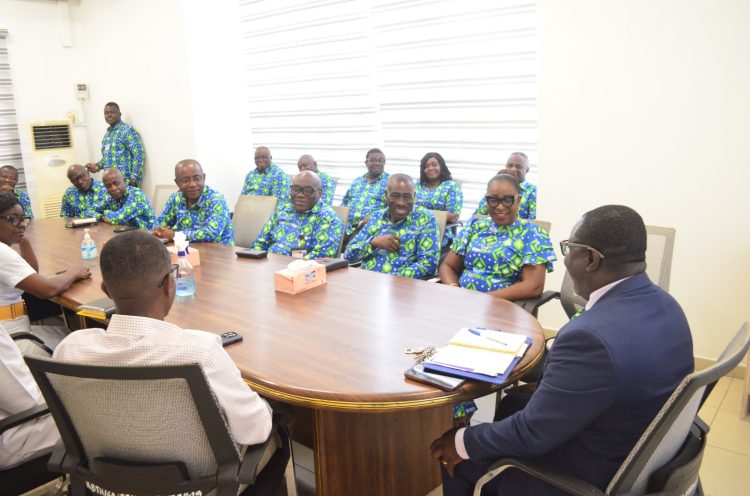
Dr. Sekyere also emphasized the urgent need for a reverse osmosis water purification system to support the new dialysis machines, an essential addition that will require an estimated ₵200,000. He appealed to other corporate entities to follow GACL’s lead and contribute toward this vital infrastructure, which would ensure continuous, safe operation of the new dialysis equipment.
Dr. Vincent Boima, a leading Kidney Disease Specialist at KBTH, noted the alarming rise in kidney disease cases among young adults aged 20-50 in Ghana. He stressed that additional support is crucial to help the Renal Unit manage these cases effectively, ensuring that patients can regain their health and continue contributing to society.
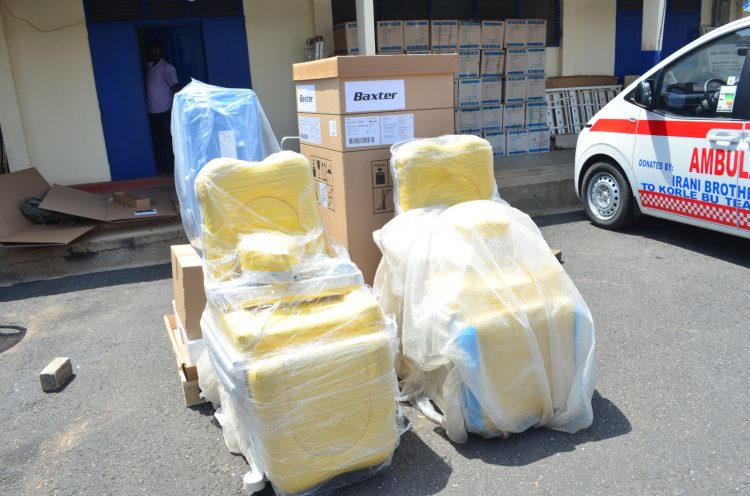
In a further demonstration of GACL’s commitment to health, Mrs. Opare presented a cheque for ₵200,000 to the National Cardiothoracic Centre (NCC). She explained that this contribution is part of GACL’s ongoing Corporate Social Responsibility program, where GACL staff members voluntarily contribute a portion of their salaries to support healthcare causes.
“Our team at GACL believes in supporting essential healthcare services in Ghana, and this contribution reflects our dedication to making a meaningful impact,” she added.
Prof. Martin Tamatey, Acting Director of the NCC, thanked GACL for their consistent support, acknowledging that the funds would be judiciously used to improve services and provide essential care to patients in need. “Every bit of support helps us save lives and manage complex cases that require specialized attention,” he stated.
The event highlighted the importance of corporate contributions to the healthcare sector, particularly in addressing urgent needs that impact patient outcomes.
Dr. Sekyere and Prof. Tamatey both underscored the need for other corporations to emulate GACL’s example, stressing that private sector support can be transformative for healthcare facilities facing resource shortages.
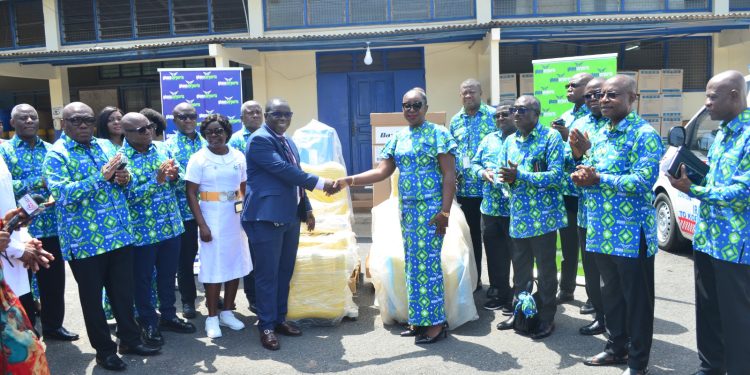
The community has expressed appreciation for GACL’s commitment, as the donation is seen as a significant step toward improving the quality of healthcare services available to the public.
Patients and their families shared their gratitude, noting that initiatives like these not only ease financial burdens but also boost morale by showing that the private sector is invested in the welfare of Ghanaians.
Through this impactful gesture, GACL continues to demonstrate a holistic approach to Corporate Social Responsibility, prioritizing initiatives that provide lasting benefits for healthcare and serve as a model for corporate contributions to Ghana’s health sector.


































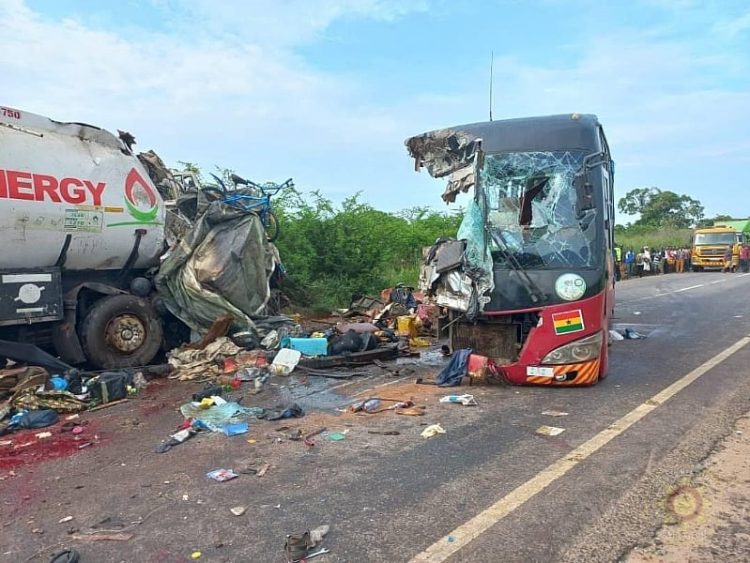


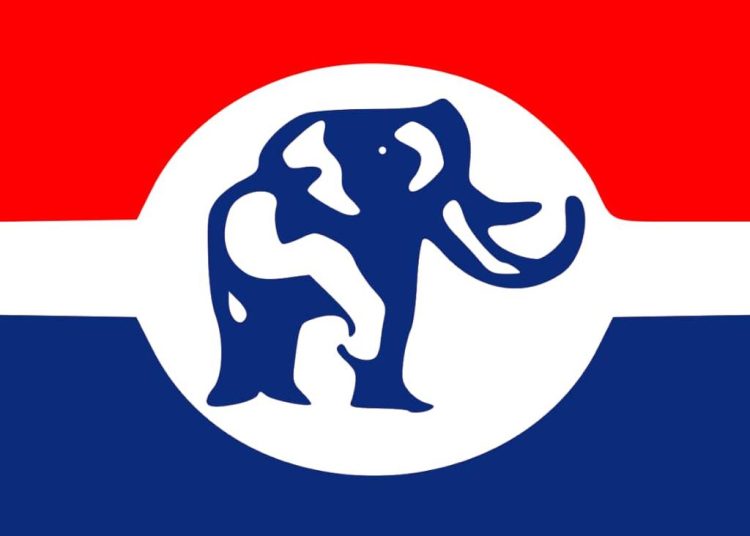

















![[FREE FREE MONEY] Predict and Win a Guaranteed GH¢200 From Us EVERY WEEK](https://wordpress.ghanatalksradio.com/wp-content/uploads/2022/02/Predict-and-Win-Final-09-03-2021-218x150.jpg)
![[Predict & Win – 8th/Oct.] WIN A Guaranteed ¢200 From Us This Week](https://wordpress.ghanatalksradio.com/wp-content/uploads/2021/10/maxresdefault-16-218x150.jpg)
![[Predict & Win – 2nd] WIN A Guaranteed ¢200 From Us This Week](https://wordpress.ghanatalksradio.com/wp-content/uploads/2021/09/maxresdefault-50-218x150.jpg)
![[Predict & Win – 25th] WIN A Guaranteed ¢200 From Us This Week](https://wordpress.ghanatalksradio.com/wp-content/uploads/2021/09/maxresdefault-36-218x150.jpg)
![[Predict & Win – 18th] WIN A Guaranteed ¢200 From Us This Week](https://wordpress.ghanatalksradio.com/wp-content/uploads/2021/09/maxresdefault-23-218x150.jpg)
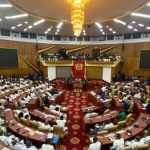





![[National cathedral] See full list of churches that have contributed since 2018](https://wordpress.ghanatalksradio.com/wp-content/uploads/2020/09/Ghana-National-Cathedral-GhanaTalksRadio-100x70.jpg)



